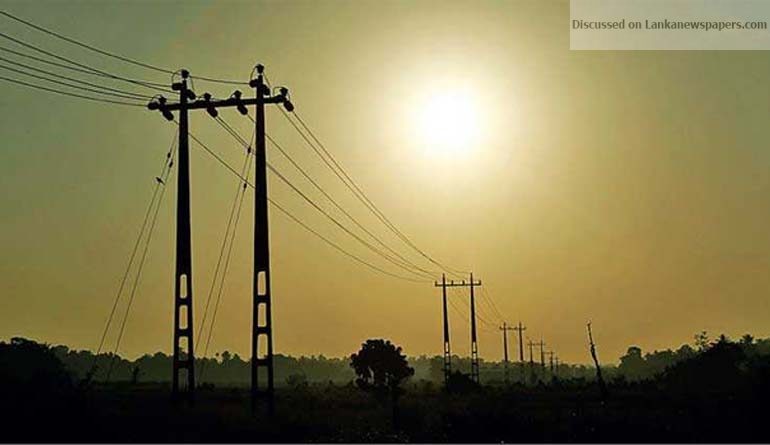President seeks AG’s help to break deadlock between PUCSL and CEB
- PUCSL still opposed to CEB’s original plan submitted in 2017
- CEB insistent on getting approval for original plan
- CEB Engineers’ Union calls for SGM on 1 June
The battle between the Public Utilities Commission of Sri Lanka (PUCSL) and the Ceylon Electricity Board (CEB) has reached a stalemate with the former refusing to approve the generation plans proposed by the latter.
In the latest bid to break the deadlock between the PUCSL and the CEB, President Maithripala Sirisena last week convened a second meeting with all stakeholders, including three top members of the Attorney General’s Department, which was followed by an exclusive meeting between the PUCSL and Sirisena on Monday (28).
At the latest meeting convened by the Presidential Secretariat last week, with the participation of Attorney General Jayanthantha Jayasuriya (PC), Additional Solicitors General Sanjay Rajaratnam (PC), Power and Renewable Energy Minister Ranjith Siyambalapitiya, Ministry Secretary Dr. B.M.S.Batagota and CEB Board Engineer’s Union representatives, the discussion focused on clarifying the duties and functions of each of the two institutions to negotiate an agreement between the two institutions.
“The PUCSL is only responsible for approving power generation plans and the CEB is responsible for devising those generation plans. But in light of what has been happening,clarifications were sought to ensure that all action taken was within their mandate,” a top source privy to the business of the meeting.
The CEB and PUCSL have been at loggerheads with each other over the Long-Term Least Cost Generation Plan for the next 20 years which included a mixture of power plants.
The plan submitted by the CEB, which featured new coal plants, was rejected by the PUCSL, which deemed the cost to be higher than the base year after adjustments for externalities were made. Instead of the original plan submitted by the CEB, one of their optional plans which featured LNG and renewable generation plants was assessed to be more suitable by comparison. However, a final decision remains elusive as neither institution is willing to revise its stance.
Following Cabinet approval for the ‘Policy on Energy Mix of Electricity Generation in Sri Lanka’, two weeks ago the PUCSL had requested the CEB to submit a new generation plan stressing that it was unethical to approve the original plan submitted by the CEB as it had already undergone amendments through several rounds of public consultation.
“The PUCSL approved the generation plan after having two public consultations. To date the plan has not been technically challenged by CEB’s management. Implementation is the only key for not facing an energy crisis in the future,” PUCSL Tariff and Economic Affairs Director Kanchana Siriwardane told.
“Plus, it is not ethically correct to approve the CEB’s earlier submitted plan which the public asked to amend. We as a government agency and a regulator should listen to the concerns of the people in this country and have to be compliant with the legislation and the policies of the Government.”
However, the CEB is still insistent on the original plan submitted in 2017.
“We requested to approve the original plan, but we will revise the next one. The new policy mix is also in line with the original plan. It is consistent with the new policy as well,” said CEB General Manager A.K. Samarasinghe.
The Engineers’ Union too insists that the original plan should be approved before amendments are made this year. The union has been on a Work-to-Rule campaign demanding the same and is now threatening to take severe trade union action if the PUCSL fails to meet the demand.
The union has called for a special general meeting on Friday (1 June) to decide on further action to be taken, Union President Saumya Kumarabandu told.
“The original plan that was submitted by us in 2017 was quite similar to the energy mix policy that obtained Cabinet approval on May. Now the problem is that we don’t have an approved plan even to come up with a new one. Also, revising a plan which has been done for 20 years is a massive task, even to amend certain parameters. This is a time consuming, difficult process,” Kumarabandu said.

